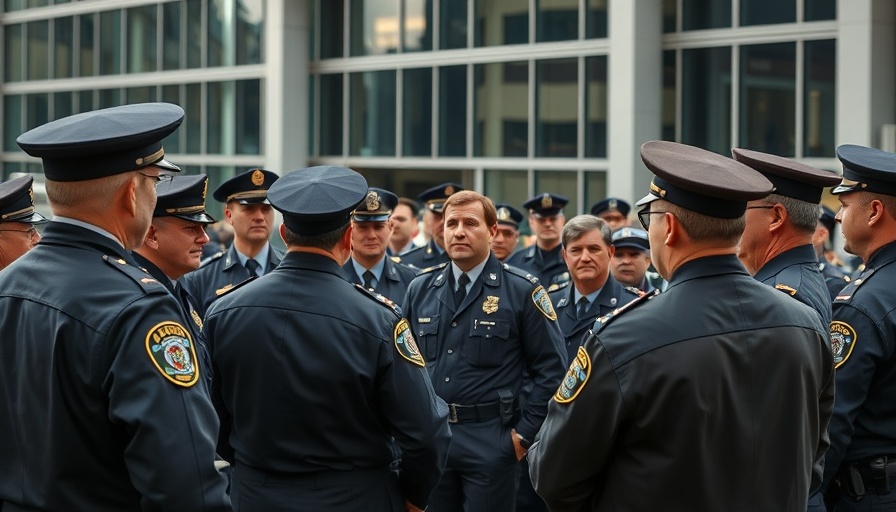
Understanding the Scope of Trump's DC Police Takeover
The recently voiced support for Trump’s initiative to federalize Washington, D.C.'s police force has ignited a heated debate within political circles and amongst everyday citizens. FBI Director Kash Patel, a key figure in the Trump administration, underscored the sentiment that 'when you let good cops be cops, they deliver.' This statement highlights a deep-rooted belief among some advocates that empowering law enforcement will yield better outcomes in public safety.
Analyzing Crime Trends and Law Enforcement's Role
Crime rates in urban areas like D.C. have spurred concerns over public safety, particularly in light of rising violence and unrest. While advocates for the federal takeover point to the potential for increased accountability and visible presence of law enforcement to create safer communities, critics argue that federal intervention could undermine local governance and community trust in police.
Criminal Justice Reform: A Complicated Landscape
Patel’s endorsement comes at a time when calls for police reform are prevalent across the nation, particularly following widespread protests in 2020. The ongoing discussions around police practices and community relationships intersect with Trump's proposals, raising critical questions about what effective policing looks like in today’s society. Balancing safety and civil rights remains a complex endeavor, leading to varied opinions on the effectiveness of sweeping police reforms versus an enforced federal presence.
The Political Implications of Federalizing DC Police
Political ramifications are considerable as Trump's plan unfolds. The move has already become a point of contention between parties. Proponents within the Republican Party see it as a necessary action to restore order, while Democrats view it as an affront to local autonomy and community policing efforts. Understanding these divisive perspectives is essential to navigate the evolving national conversation around crime and enforcement.
Impact on Local Communities: Voices from DC Residents
Responses from D.C. residents run the gamut from cautious optimism to outright opposition. Some express hope that federal oversight might lead to a decrease in crime rates, while others worry about the erosion of community autonomy and the potential for overreach. Such local sentiments are crucial for gauging future support for federal interventions in urban policing.
Future Predictions: What Lies Ahead for DC Policing?
As the administration prepares to implement this federal strategy, experts caution that success will depend significantly on ongoing dialogue with local leaders and the community. With growing concerns about potential militarization and civil rights ramifications, there’s a pressing need for strategies that not only enhance public safety but also foster community trust.
Conclusion: The Road Forward in Crime Policy
In the landscape of rapidly changing crime policies, it is increasingly vital for citizens to remain informed and engaged. With high stakes surrounding Trump’s police federalization strategy, understanding the nuances and implications will empower voters. By staying updated on federal and local policy intersections, individuals can better advocate for their communities and influence future decisions.
At this pivotal moment in national discourse, engaging in conversations surrounding these developments is essential. Learning more about how such actions could reshape local policing and ultimately affect daily life can aid in making informed decisions at the ballot box and in community dialogues.
 Add Element
Add Element  Add Row
Add Row 



Write A Comment